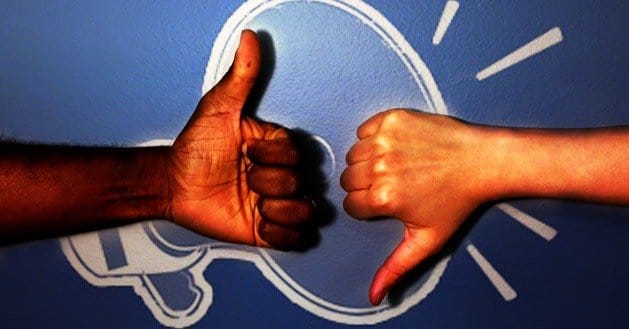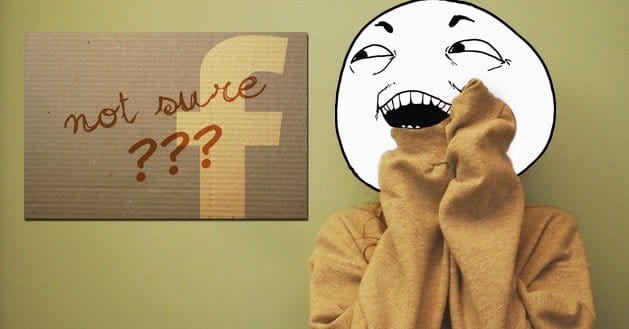 Written by ContentPowered.com
Written by ContentPowered.com
Facebook began as a simple way to engage friends and family with everyday musings and status updates. As the platform evolved, especially after becoming a publicly traded entity, advertising became one of its core uses. Naturally, big businesses have educated themselves on Facebook use, pouring thousands of dollars into advertising and constant posts. However, small businesses need a way to advertise to their specific customer base with a reasonable price.
Facebook ads, and the inevitable business page, are not the best choices for small companies trying to make their mark. There are several key issues that can make the ads and pages potentially difficult to manage.
Ads Don’t Equal Instant Clicks
As a recent study from Reuters was published, it showed that 80 percent of Facebook users did not click on ads or purchase those products. Although ads show up based on a user’s history of likes and dislikes, people were not tempted to click on the ads. However, users did say that they saw the ads, breeding some familiarity for your logo or brand. If you are a small business, your brand may not be that widespread yet. You need those ads clicked to expand your business information carefully. With ads taking up much of the right-hand column, the images may blur together for some users, reducing your advertising impact.
The Elusive Landing Page
If you do end up with a click on your Facebook ad, it typically takes you to your business page. With the old Facebook configuration, this page was essentially your business website. You could set the page up just like a site users would reach on the Internet. For small businesses, this meant instant contact and possible sales.
With the change to the timeline effect, the business page acts more like a user’s status page. It is difficult to add elements that businesses need, from “about us” content to a descriptive product text. It is more effective to a have a dedicated website to explore your product correctly.
Burdensome Cover Image
When you build a Facebook page for your ads to link to, the entire top quarter of the page is dedicated to a cover image. For many small businesses starting out, they do not have the team to dream up an image, implement it and post it. If you leave the space blank, however, it offers an unsightly appearance as visitors finally click into your page. Small businesses that want to bring their ads and page into working order rapidly will find a hurdle with this cover image conundrum.
Trying To Sell Your Brand
If you are finally able to create an image for your business page, you are faced with another obstacle as users click on your ad. They come to your page, but only find an image covering their screen. No promotional language is allowed on the image, forcing users to scroll down to see any information about the company. If a customer was wary when they clicked the ad, they may not be inclined to continue on.
Users want information fast and in front of their eyes. Small businesses trying to make a name for themselves need to bring their products or services to the customers’ attention immediately. If a small business designs a website, most of the core services and mission are displayed across the top of the screen, along with the company name. Facebook ads, leading into the business page, do not provide enough flexibility for small businesses to make an impression on fast-clicking consumers.
Not Exactly Interactive
Facebook ads and business pages offer you ways to analyze traffic and customer response. Although this sounds theoretically appealing, your contact with these consumers is passive. You cannot, for example, message a user after they click an ad or read your business page. Instead, you are simply building an advertising base, without any way of interacting with the potential clients.
In essence, Facebook ads act as virtual billboards. You get your word out, but trying to negotiate a sale is not possible. For small businesses wanting to engage their customers, Facebook provides a blocked road between the entrepreneur and consumer.
“Likes” Aren’t That Likeable
One of the main ideas of Facebook is to “like” products, services, people or events. When a user “likes” something, it ends up on their news feed, essentially extending the Facebook ad idea. For example, your small, right-hand corner ad is clicked. The user sees your Facebook business page, and subsequently hits the “like” button. From Facebook’s basic operational descriptions, that user will now have your posts sent to their news feed.
However, posts don’t always make it to each news feed. For a more guaranteed way to populate users’ news feeds, Facebook offers an option to promote the post. As a small business, however, you must pay for this promotion. If you are trying to break into your respective business, marketing funds are limited. This promotion tactic steals critical money from your start-up business.
Resellers Beware
If you are a business that resells to other businesses, or operates in other B2B selling strategies, Facebook ads are not for you. This advertising platform is for direct customers. Although there are some businesses that operate as both B2B and direct consumer sellers, they are very limited across Facebook. It is best to look for another social media website that has a more business-minded niche.
Flashy Ads
Advertising needs to be exciting, or else people will not want to pay attention to it or click on it. Facebook’s parameters make ads look incredibly boring. You cannot make the ad stylized for your brand or position it differently on the screen. It may even blend in to the background as more interesting images appear on the user’s news feed. Advertising has more options on other websites and social media outlets.
Costs Add Up
There are different ads available to match with your small business niche, but they will cost you. In fact, you can spend hundreds, and even thousands, of dollars to keep a Facebook ad rotating through the system. You could hire a billboard and have better response with that kind of money. As ads get larger and more intricate, Facebook charges accordingly. To be truly noticed, small businesses may need to find a better advertising platform.
Limiting Space
To compound the issue of ad cost, now Facebook has premium ads that many corporations are snatching up. The ads are larger on the page, effectively reducing screen real estate. Small businesses, picking up the small ads, are forced to compete with well-known names that divert attention away from new ideas and products. At that point, a small business cannot compete through Facebook ads alone. You either pay for the larger ads or find your marketing strategy struggling to be heard.
Although Facebook ads do have some redeeming qualities, many of the platform rules and design make it difficult for the average small business to make a dent in their struggling customer base. Businesses may want to look into other website platforms that cater to the start-up world. Your business could be the next huge corporation, you just need the time and exposure to build your brand effectively. Research your options to find the best place for your name.



I’m not sure if I’d go as far as to say they’re a “poor choice” but I think it depends what you define as a small business. If a local bakery is going to go out of business if their $500 advertisement budget doesn’t get customers in their front door, then it’s probably bad for that small business. People have varying success with Facebook’s ad network, just like any other ad network out there. There’s too many variables to consider to determine it’s bad for small business right away.
I’ve spent a lot of money with not a lot of results. I won’t be using it again, at least not until I’m relatively confident I can start generating some sales with the money I spend. The roi was just not there for me.
I think Facebook ads can be great for small businesses; I personally know a handful of businesses that survive from Facebook ads alone (health related businesses, food/restaurants, computer repair). I think if you have a very niche product, you’re going to have a harder time converting your viewers into sales; same can be said about any ad platform…